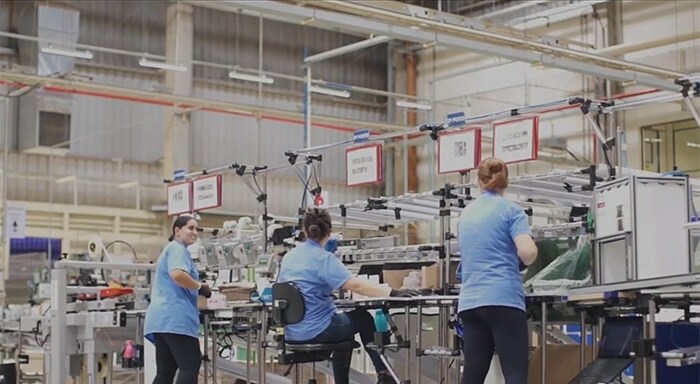While healthcare providers are focusing their innovation efforts on improving patient outcomes and lowering the cost of care, there is also an increasing recognition of the industry’s environmental impact. At the 2019 Radiological Society of North America (RSNA), Philips is highlighting its efforts to transition to a ‘circular economy’ in healthcare, moving from today’s linear materials use approach of ‘take › make › dispose’ to a circular model of ‘make › use › return’. The company is on track to deliver on its 2018 pledge to take back and repurpose all the large medical systems equipment that its customers are prepared to return to it by 2020.
For a sustainable world, the transition from a linear to a circular economy is essential.
Robert Metzke
Head of Sustainability at Philips
“For a sustainable world, the transition from a linear to a circular economy is essential,” said Robert Metzke, Head of Sustainability at Philips. “By adopting innovative business models and maximizing the lifetime value of our products and solutions, we are opening up new opportunities for healthcare providers, including growth and cost savings, reducing resource risk, and facilitating smart asset management. At the same time, our circular propositions help to enable better healthcare while reducing the waste of precious resources, lowering our total environmental footprint.” Philips is actively pursuing the trade-in of equipment such as MRI, CT, ultrasound and interventional and diagnostic X-ray systems, taking full control to ensure that all traded-in materials are repurposed or recycled in a responsible way. An important part of its efforts is the company’s Diamond Select refurbished systems program, which provides refurbished imaging systems that have the same Philips quality and performance as new equipment at lower cost.
Philips recently replaced an old Philips digital radiography system at Reinier de Graaf Ziekenhuis in the Netherlands with the latest ceiling-mounted system, the DigitalDiagnost C90. Reza Karimzadeh is head of the hospital’s radiology department: “Our hospital supports and encourages the transition to a circular economy, so we are pleased that Philips shares this objective.” Transitioning to a circular economy is one of Philips’ sustainability goals as the company continues to strive to make the world healthier and more sustainable through innovation. The company is a recognized industry leader or sustainability and is consistently highly ranked in the Dow Jones Sustainability Indexes’ Health Care Equipment & Services industry group. Philips is also taking a systematic approach to improve the sustainability of its supply chain through its Supplier Sustainability Performance approach. Philips is helping drive access to care by repurposing its used medical equipment, donating clinically viable systems for another lifecycle in underserved communities. Earlier in 2019, Philips announced a partnership with MedShare, as part of which the company provides application training, service and remote monitoring, ensuring its equipment is part of a sustainable solution in medically underserved areas. At RSNA 2019 the company will also highlight its breakthrough Ingenia Ambition 1.5T MR system, which includes the industry’s first fully sealed magnet for more productive, helium-free operations. The fully-sealed magnet dramatically reduces the amount of liquid helium – a limited natural resource – needed to cool the magnet to less than half a percent of the current norm [1]. More information about Philips’ sustainability initiatives can be found here. Philips will demonstrate its integrated portfolio of imaging solutions at RSNA 2019 in booth #6730. For more information about Philips’ presence at RSNA, visit www.philips.com/RSNA, and follow @PhilipsLiveFrom for #RSNA19 live updates. [1] Compared to the Ingenia 1.5T ZBO magnet.
















